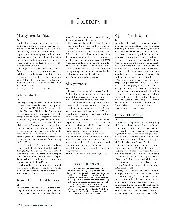
Remembering David Jefferies
Sir, An excellent article on Stuart Graham. I can't imagine an individual progressing in the sport in such a simplistic manner nowadays. Just a small correction — he wasn't the…

Ojjeh played a key role in helping McLaren rise to immense grand prix success during the 1980s
Getty Images
He may not have been the most prominent name in the paddock, but the recent death of business magnate Mansour Ojjeh will be felt across the grid, especially at McLaren, a team he helped to so much success during 37 years as a shareholder.
Ojjeh died at the age of 68 on the day of the Azerbaijan Grand Prix. He had battled illness for quite some time, and played a low-key role with the Woking team following a double lung transplant back in 2013 to tackle a rare and progressive breathing disorder.
Having started his F1 involvement by sponsoring Williams, the French-Saudi Arabian businessman was instrumental in McLaren’s rise to prominence during the 1980s, having facilitated the team’s switch to Porsche engines in 1983 via his Techniques d’Avant Garde (TAG) technology company.
TAG funded the development of the turbocharged Porsche heart that powered Niki Lauda to the 1984 title, just ahead of team-mate Alain Prost. Ojjeh took up a place on the McLaren board and oversaw the ultra-successful Honda era and the signing of Ayrton Senna, before Mercedes-powered titles for Mika Häkkinen and Lewis Hamilton. He was also instrumental in ousting Ron Dennis from the company in recent years.
In total, McLaren enjoyed 10 Drivers’ and nine Constructors’ championships with Ojjeh. His 29-year-old son, Sultan, had already taken up his place on the boards of both McLaren Racing and McLaren Group.
McLaren Racing head Zak Brown said: “Mansour was a true racer in every sense. Ultracompetitive, determined, passionate and above all, sporting. He was a titan of our sport.”